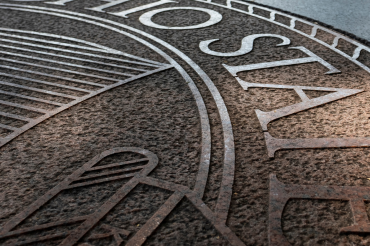Students Recognized with Special Innovation Award from International Institute for Conflict Prevention and Resolution

Students Recognized with Special Innovation Award from International Institute for Conflict Prevention and Resolution A paper written by Ohio State students for their Engaging Polarized Groups class has won the first-ever Special Student Innovation Award from the International Institute for Conflict Prevention and Resolution (CPR). The student authors included Moritz College of Law alumni Maxwell Herath, Julie Howard, Meara Maccabee, and Ohio State City and Regional Planning master’s student Konner Kelly. The students used dispute system design concepts to deal with a growing problem of politically polarized student groups, which they believed had undermined the healthy intellectual exchange that is a hallmark of higher education. Engaging Polarized Groups was taught in spring 2023 by Moritz College of Law Dean Emeritus Nancy Rogers and College of Social Work Dean Emeritus Tom Gregoire. “The students’ product recognized that how we are together as a community matters,” said Gregoire. “I appreciated their creativity and commitment to the design, and implementation, of a structured approach that when tested provided an effective pathway to more proactive engagement for two historically divided groups.” “When differences among student groups become embittered, it puts a damper on the intellectual interchange we value in university life,” Rogers said. “These four students invited the officers of two polarized student groups to join them for lunch and employed their framework with significant success. We are incredibly proud of what these four students contributed and grateful to CPR for celebrating it.” The student authors were proud and honored to learn they had received this recognition from CPR, too. “In a school setting, you typically expect your ideas to stay within the classroom walls,” said Howard. “Nancy, Tom, and our student teacher Anthony really went out of their way to make sure our ideas and work made their way to leaders in the dispute resolution community. Their efforts made me feel like all the work we did may make a real impact.” Throughout writing the paper and implementing their ideas, the team learned several lessons – not only about dispute resolution, but also human behavior. “My biggest lesson learned was how to move from theory to practice within conflict resolution, which I’ve found requires ample amounts of self-confidence, a courage to meet the conflict and those embroiled in it where they’re at, and the humility needed to genuinely hear where everyone in the conflict is coming from,” said Kelly. “Learning that engaging with others, even if I don’t think we’ll agree, is an important part of understanding my own values and learning how to communicate them,” Maccabee added. “Our values can do the most work when we know how to effectively communicate our ideas and perspectives with others.” The paper will be published online by the Divided Community Project. As it becomes a resource for the public, the student authors hope their work will continue to make an impact. “I hope that this piece will influence administration and student leaders to prioritize consistency in their words and actions — before, during, and after conflict,” said Howard. “Students watch everything the adults around them do. If actions and words don’t line up, they will notice, and they will lose trust.” Kelly added, “I also hope that this framework will be useful in navigating the increasingly polarized world that we live in and help disarm fear and anger with empathy and understanding.” To read the team’s award-winning publication, click here. To learn more about the award, read CPR’s press release.
